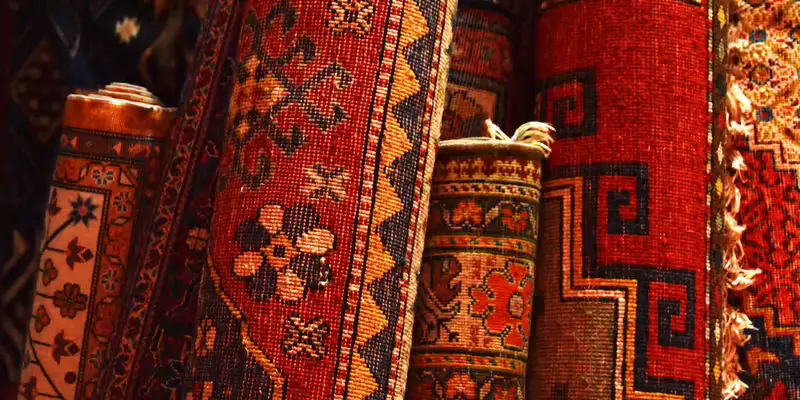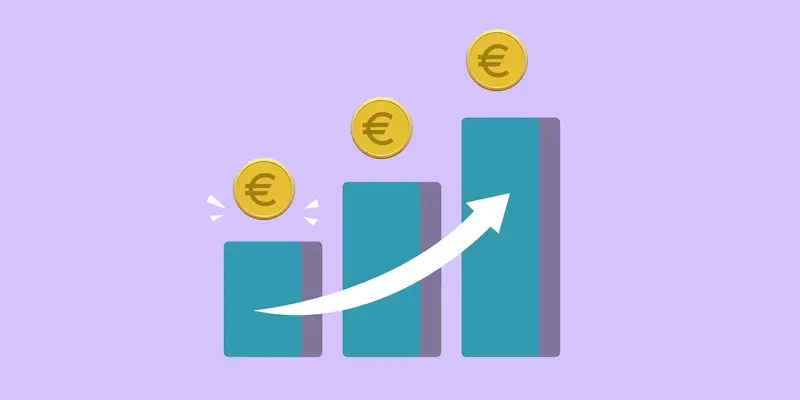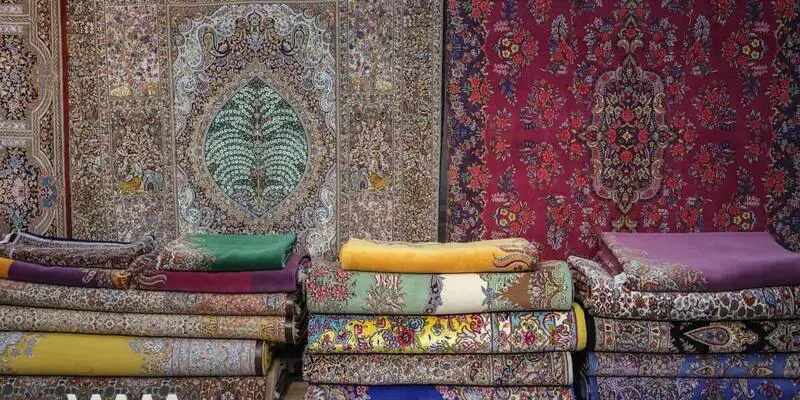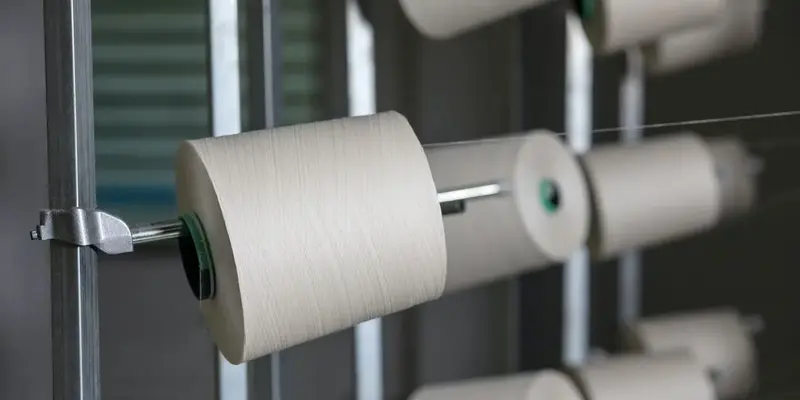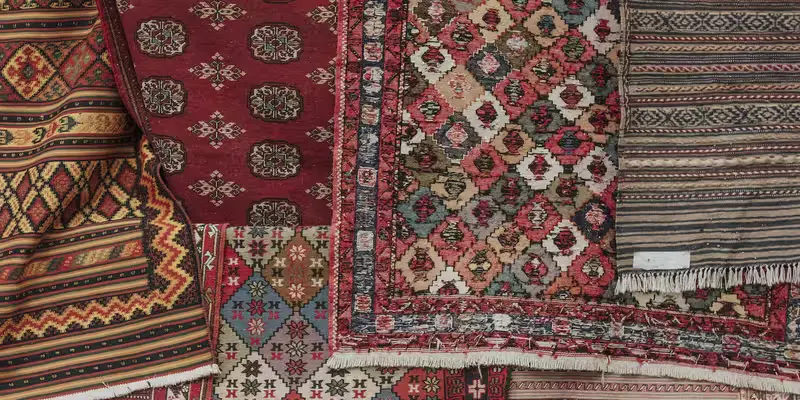History of first Iranian carpet weaving factory establishment
Carpet production in Iran dates back to the 1971, in that time the BEHSHAHR Industrial Group seeks a specialized complex unit carpet weaving factory projects in KASHAN.
For this purpose prior to it, in KASHAN silk & velvet fabric factory, that was active in production of velvet and silk fabrics, attempted experimental production of carpet, and adding it to their products. Therefore, in 1350, the first Iranian machine made carpet was produced by weaving jacquard velvet machines in this factory.
The carpet released to the market with relatively short pile and shiny synthetic fibers and light weight. Before that there was no machine made carpet production in Iran and no machine made carpet import to Iran, It was not customary to use carpets in Iran and most people used handmade carpet and rug and glim.
At the same time, a group of businessmen entered machine made carpets to the Iranian market from Belgium. And Iranian tastes were familiar with the phenomenon machine made carpets. Because the machine made carpets was fairly well accepted by the people.
Then BEHSHAHR Industrial Group Investors started to implement their projects.thus the first Iranian carpet weaving factory with capacity of 12 millions square meters per year was launched in KASHAN in 1974. This plant received establishment license with the name of KASHAN RAVAND Industry Carpet Company. This plant is located at kilometer 12 of Qom and KASHAN road.
This Complete Production Carpet complex was the largest and most modern factory with an area of more than one hundred hectares with a newest and most modern organization in terms of Management & Engineering & Procurement & Financial Management & Sales & Administration & Services & Welfare.
The plant organization was respectively consisted of Management and Industrial Engineering (production, quality control, laboratory equipped, warehouse system), engineering services (utilities ,electricity, power plant, boiler installations, repair workshop و maintenance of buildings) and procurement , sales , financial services (Finance and Trade sales Representatives) public utilities (residential, hotel, transport, restaurant, swimming pool, gardens and land).
All management and engineering personnel’s were selected through the best experts educated through the most elite universities.
From the beginning, the founders of the company were considered creation of Industrial Engineering Department in this factory. All matters related to production and quality control would be supervised in this section.this was done by quality control laboratories equipped and a set of the standards and continues inspection and monitoring the various stages of production operations in plant.
Carpet production operations begin entering raw materials as different fibers into production processes and then converting to yarn and then dyeing and preparing yarn for weaving, weaving ,completing.All this operations have been made in several equipped carding ,spinning ,dyeing, arrangements ,weaving, finishing, sizing, packing halls and rooms.
This plant achieved to significant success in producing and exporting and a worldwide reputation in a short time, in the beginning of start up the factory, workers for production lines were provided from Asian countries, particularly female workers.
statistical results of Iranian carpet weaving factories establishment process in past four decades
Since Carpet production in Iran dates back to 40 years ago, this study included all activated carpet factories which have operating license from Iran Ministry of Industry, Mine and Trade, and have been built from the beginning of carpet production in Iran since 1974, It is clear that during this period several units have been launched or established, and then their license have been revoked which has not been considered in the statistics study. And then summarized results are presented in Tables 1 and 2. In this part we will pay only to Statistical obtained results, and statistical analysis will be presented in the next part.
By examining the specifications of all current and activists carpet production units have operating license from the Ministry of industry and trade and mine in the nationwide obtained establishment Specifications and production capacity of carpet factories in past four decades table.(table-1) .
Table1- Establishment Specifications and production capacity of carpet factories in past four decades
Establishment year
Review of statistical results:
By reviewing table 1 ,units had been established during the year 1974 to the present can be sorted in the six categories.this classification presented in table2 ,as the six period of Establishment Specifications carpet factories in past four decades table.
Table2: the six period of Establishment Specifications carpet factories in past four decades
First Period: During this 5 years period between 1974 till 1978, the table shows progress in construction of new units, 2 Noun’s of units built in this period are currently active. During this period, were added the average annual 0.4 carpet factories, each with average nominal production capacity of 1200,000 square meters.
In other words, it have been added the average annual nominal production capacity of 480000 sq. m to the nominal capacity production of country. At the end of this period, the total nominal production capacity of machine made carpets of the country was 2400000 square meters.
Second Period: During this 8 years period between 1979 till 1986, the table shows a low progress in construction of new units compared to the previous period, 3 Noun’s of units built in this period are currently active. During this period, were added the average annual 0.4 carpet factories, each with average nominal production capacity of 387,000 square meters.
In other words, it have been added the average annual nominal production capacity of 155000 sq. m to the nominal capacity production of country. At the end of this period, 1239000 square meters was added to the total nominal of machine made carpets production capacity of the country, which shows low growth.
Third Period: During this 7 years period between 1987 till 1993, the table shows a relative increase in construction of new units compared to the previous period, 13 Noun’s of units built in this period are currently active. During this period, were added the average annual 1.85 carpet factories, each with average nominal production capacity of 377,000 square meters.
In other words, it have been added the average nominal production capacity of 697000 sq. m to the nominal capacity production of country. At the end of this period, 4878000 square meters machine made carpets was added to the total nominal production capacity of the country, which shows relative growth.
Fourth Period: During this 11 years period between 1994 till 2004, the table shows a significant increase in construction of new units compared to the previous period, 434 Noun’s of units built in this period are currently active. During this period, were added the average annual 40 carpet factories, each with average nominal production capacity of 85,000 square meters.
In other words, it have been added the average annual nominal production capacity of 3412000 square meters of carpet to the nominal capacity production of country during this period.At the end of this period, 37531000 square meters machine made carpets was added to the total nominal production capacity of the country, which shows significant growth.
Fifth Period: During this 7 years period between 2005 till 2011, the table shows a more significant increase in construction of new units compared to the previous period, 518 Noun’s of units built in this period are currently active. During this period, were added the average annual 74 carpet factories, each with average nominal production capacity of 150000 square meters.
In other words, it have been added the average annual nominal production capacity of 11149000 square meters of carpet to the capacity production of country during this period .At the end of this period, 78043000 square meters machine made carpets was added to the total nominal production capacity of the country, which shows more significant growth.
Sixth period: During this 1.5 years period between 2012 till 2013, the table shows a more significant decrease in construction of new units compared to the previous period, 15 Noun’s of units built in this period are currently active. During this period, were added the average annual 10 carpet factories, each with average nominal production capacity of 229000 square meters.
In other words, it have been added the average annual nominal production capacity of 2290000 square meters of carpet to the capacity production of country during this period. .At the end of this period, 3436000 square meters machine made carpets was added to the total nominal production capacity of the country.
Statistical analysis the results of Iranian carpet weaving factories establishment process in past four decades
In the second part of the paper, the statistical results were presented in Tables 1 and 2, identified a six period process for the construction of Iranian carpet factories during four decades. Let us now analyze Tables 1 and 2 according to our information and experiences and records from past.
First period: The range between the years 1974 to 1978 can be seen as the beginning of construction of carpet factories.During this period a small number of production units have been launched but relatively large and comprehensive units with a capacity of over one million to 12 million square meters have been built even. The main features of these units are good quality and lower price productions.
This factories in their period have been, dynamic and developing and employment and entrepreneur. These units also have transferred technical knowledge to the Iranian carpet industry effectively. Very few of these companies are active currently, even with a very low capacity.
Second period: The range between the years 1979 to 1986 can be named as the revolution and war period. During this period a small number of production units have been launched. 3 Noun’s of units built in this period are currently active. Units founded in this period have average nominal production capacity of 377,000 square meters per unit of factory.
In the final years of this period, about year 1979 a team of engineers and technical and experienced experts in KASHAN carpet industry began making carpet weaving machines by benchmarking of similar machinery made by foreign ,which was the beginning of change in the carpet industry in IRAN.
Third period: The range between the years 1987 to 1993 can be named as establishment carpet factories with Iranian carpet weaving machines period. In beginning years of this period benchmarking team succeeded in manufacturing of first Iranian carpet weaving machine. First Iranian carpet Shuttle weaving machine with relative performance was made by the MILAD Company.
This machine was sold to an investor interested in the production of machine made carpet. Observing the success of this new venture company entered other investors to the construction of carpet factories with Iranian carpet machineries.
This period coincides with the end of the Iran-Iraq war, and the government began reconstruction and opened more space to starting a business. Groups of professionals involved in textile and carpet industry and some factory owners were active in other fields of textile carpet until that time, began creating new carpet weaving units. And boomed embracing locally manufactured Shuttle carpet machines gradually. The new shuttle machines manufacturer companies were established to gain new market share.
Competition for manufacturing carpet weaving machines was a new phase.Because of expansion of local carpet machinery manufacturers and carpet machines were provided with competitive and good price establishment of carpet weaving companies also increased. Units constructed in this period were in type of small and medium industries and each of the units had the average annual nominal capacity of approximately 377,000 square meters.13 numbers of units which were built in this period are currently active.
Fourth period: The range between the years 1994 to 2004 can be named as mutational and sustained growth of very small carpet weaving companies. A significant increase in construction of new units compared to the previous period. Several carpet factories in Isfahan and Mashhad, KASHAN and Yazd and MAZANDARAN and others were set up around the country.
This trend continued over the decade. In later newer units were started with the purchase of second-hand machines carpet which had recently been allowed by government. These second hand carpet machines have had more new technology compared with shuttle technology. 434 Noun’s of units built in this period are currently active.
With moving experienced professionals personnel from large national companies to private the new plants, new competition in carpet manufacturing units in the private sector was created. From the middle of this period began the carpet evolution in the private sector and grew tendency to buy more advanced models carpet weaving machines from Belgium and Germany with more speed production and more color carpet. While very few exploitation license issued in the previous period, but the growth rate of factory establishment accelerated suddenly from 1988. Gradually, more units received exploitation license.
Due to growing demand the carpet industry saw bright future ahead. Therefore, large investments were made in Iran and most of this investment has been in KASHAN and ARAN VA BIDGOL. This volume of industrial investment provides employment for thousands of local residents.
In this period, we see jumping growth in number of established carpet factories and was added the annual average of 40 plants to existing plants of country. Units constructed in this period were in type of very small industries and each of the units had the average annual nominal capacity of approximately 85,000 square meters.434 numbers of units which were built in this period are currently active.
But the lack of local carpet machines manufacturer of attention to the promotion and development the quality and quantity and update of their products, Lack of competitiveness with foreign manufacturers, tendency of carpet weaving machines buyers to purchase foreign modern machines, and some other factors during this period, particularly in the late, It caused a sharp reduction in demand faced by the local manufacturers, so they have shut down or been in decline at now.
Fifth period: The range between the years 2005 to 2011 can be named as mutational and sustained growth and renewal and modernization of small carpet weaving companies. A significant increase in construction of new units compared to the previous period. The construction of the new units shows increase over the period before.
In this period, we see jumping growth in number of established carpet factories and was added the annual average of 74 plants to existing plants of country. This period also continued to grow with a higher jump in production capacity and with a higher number of units under construction and established carpet factories and was added the annual average of 74 plants to existing plants of country which shows near double growth compared to the period before.
Units constructed in this period were in type of small industries and each of the units had the average annual nominal capacity of approximately 150,000 square meters which shows double growth compared to the period before.518 numbers of units which were built in this period are currently active which shows 20% over compared to the period before.
During this period the average annual nominal production capacity of established units is 11149000 square meters which represents a growth of more than 3 times compared to the period before. At the end of this period, the total nominal production which had been added to capacity of the country is 78043000 square meters, which represents a growth of more than 2 times compared to the period before.
Sixth period: The construction of new units in the range between the years 2012 to 2013 show significantly reduced. Although the course is short and should wait until later next year, but during 1391, 15 new units have been exploitation license. Another feature of this period is increase in exports to neighboring countries and more inclined carpet industry to improve the quality of their carpet products.




